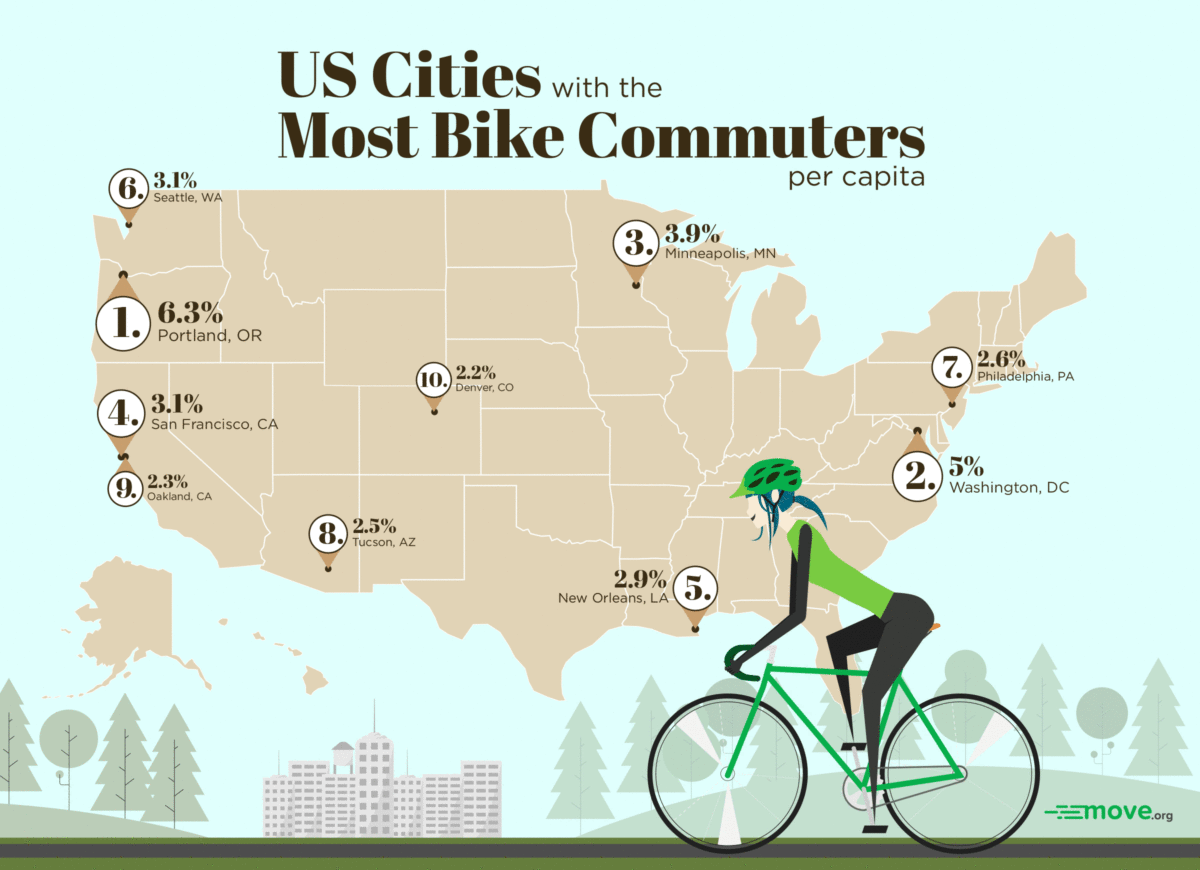Summer weather means more cyclists will be on the road making their daily commutes with a side of fresh air and exercise. You may even be one of these intrepid commuters, and with all the benefits biking offers, it’s easy to see why.
Commuting by bike helps you keep healthy even if you work behind a desk every day, and it can also save you money on gas. In some cities, riding your bike might even be a bit faster than fighting rush hour traffic or using public transit.
On top of these personal benefits, biking is also better for the environment than driving a car.
But which cities have the most people taking advantage of these benefits? We found out.





